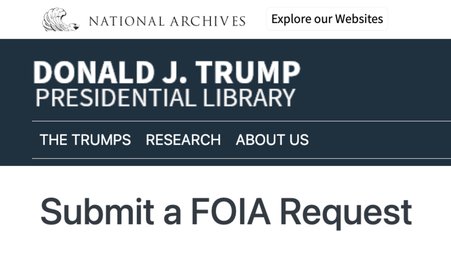Stephen Miller, who serves as both the White House deputy chief of staff for policy and the homeland security advisor, also moonlights as a Freedom of Information Act requester.
Miller’s America First Legal Foundation has filed a FOIA lawsuit arguing that the Government Accountability Office, which is in the legislative branch, should be an executive branch agency subject to the transparency law.
The ramifications of AFL’s long-shot FOIA suit succeeding could be massive. Not only would it place the GAO under more control of the president, it would further diminish Congress’ ability to conduct oversight of the executive branch.
FOIA suit seeks executive branch control of Congress’ watchdog
The suit, which was first reported by Law360’s Courtney Bublé, is somewhat ironic considering the administration that Miller helps lead is simultaneously trying to hide the Department of Government Efficiency’s records from FOIA and is placing a worrying number of FOIA officers across the government on administrative leave.
These aren’t the tactics of someone who cares about good faith compliance with the transparency law.
On its face, the foundation’s FOIA suit concerns a request for documents created for an October 7, 2020, GAO report entitled “Unaccompanied Children: Actions Needed to Improve Grant Application Reviews and Oversight of Care Facilities.” The report examined a Department of Health and Human Services refugee resettlement program.
GAO didn’t process the request because, as a component of the legislative branch, it is not subject to FOIA (neither is the judicial branch).
AFL then filed suit arguing, among other things, that GAO exercises “substantial executive authority” and that even though it exists outside of executive agencies, it should be part of the executive branch.
GAO is key to Congress’ oversight function
The GAO, whose status as a legislative branch agency is well-established, serves a number of important functions for Congress.
Members of Congress can ask the GAO to investigate any issue the body deems important, from the Federal Aviation Administration’s urgent need to modernize its air traffic control systems to improving the federal government’s approach to disaster recovery. It makes the majority of its reports available on its website.
It is also “the supreme audit institution of the United States” and works to determine if agencies are appropriately spending taxpayer funds. (One could make the argument that DOGE could have simply consulted GAO audits if it wanted to identify the best ways to improve government efficiency, rather than take a hatchet to the executive branch.)
Notably, GAO is currently conducting an audit of DOGE.
DOJ must “vigorously” defend GAO’s legislative status
The DOGE audit underscores one of the main reasons why the Trump administration may want more control of the agency: GAO reports could show whether the administration’s cuts have actually achieved any of its stated policy goals.
Stripping GAO of its legislative status could also seriously diminish Congress’ ability to conduct oversight of the executive branch.
If GAO were a component of the executive branch, it is easy to imagine a scenario where the Trump administration instructs the agency not to respond to congressional inquiries, as it has done with other agencies.
At least some members of Congress see the problem.
In a letter to the Justice Department, which represents GAO even though it is not part of the executive branch, members of the House Oversight and Government Reform committee asked the DOJ for written assurances that it would “vigorously" defend GAO’s legislative status.
If the DOJ provided those guarantees — thus ensuring Congress has the tools it needs to do its job — they haven’t been made public.





